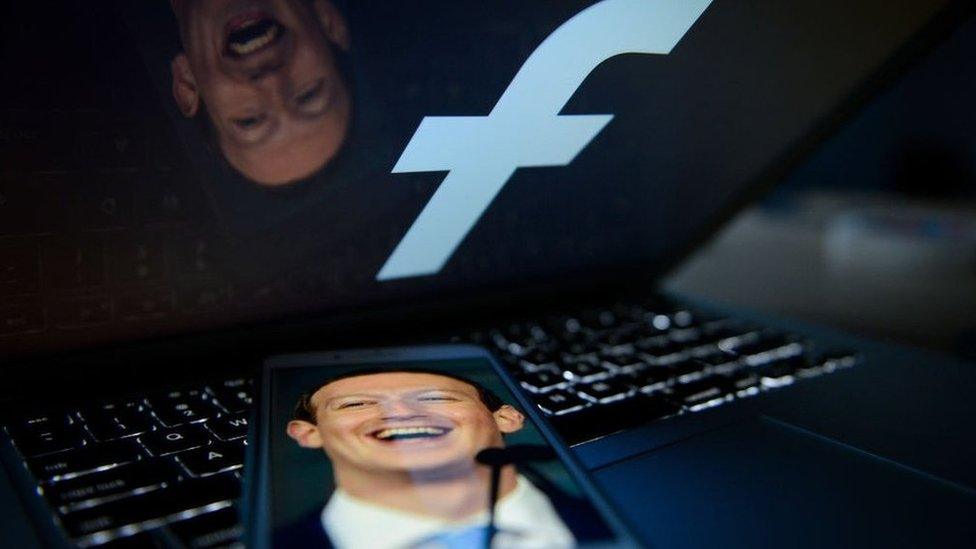Facebook's 'supreme court' members announced
- Published

Facebook has announced who will sit on an independent board, set up to have ultimate say over what controversial content should be taken down.
Former Danish prime minister Helle Thorning-Schmidt .
The panel said they will judge some of the "hardest cases out there."
One expert said it was a bold experiment, but others were more cynical about how much difference they would make.
In a blog announcing the oversight board, Facebook said it "represented a new model of content moderation".
Initially consisting of 20 members, there are plans to expand numbers to 40. It will begin hearing cases later this year.
At first this will just be deliberating on content that individuals feel has been wrongfully removed but, in following months, it will also look at appeals from users who want Facebook to remove content.
The former Danish prime minister Helle Thorning-Schmidt is one of four co-chairs
Panellists will also review content referred to it directly by Facebook, and will be able to make policy recommendations based on its decisions.
All decisions will be made public.
"The cases we choose to hear may be contentious, and we will not please everyone with our decisions. Facebook and Instagram users come from all corners of the world, and the social or cultural context in which content is posted matters. We expect passionate discussion among members," the panel said.
Co-chair Michael McConnell, a former US federal judge, said that the new method of judging content was an experiment and it was likely mistakes would be made, but he hoped that it would bring a "higher degree of political neutrality" to the platform. One of its main goals would be that Facebook "not decide elections", he said.
But he added that the board would not be "the internet police" able to sweep in and make quick decisions.
Instead it would concentrate on cases that affect large numbers of users, and those which affect public discourse or raise specific questions about Facebook's policy.
Members are a mix of journalists, judges, digital rights activists and former government advisers from around the globe, including:
Afia Asantewaa Asare-Kyei - a human rights advocate who works on women's rights and media freedom across Africa
Evelyn Aswad - a law professor who served as a senior US state department lawyer
Nighat Dad - a digital rights advocate, based in Pakistan
Alan Rusbridger - former editor-in-chief of The Guardian newspaper
Emi Palmor - a former director general of the Israeli ministry of justice
Ronaldo Lemos, a lawyer who co-created a national internet rights law in Brazil
Dr Bernie Hogan, from the Oxford Internet Institute, was not convinced that its members would wield any real power.
"Fundamentally, Facebook is a corporation. Its veneer of governance is admirable and thorough, but the buck does not stop with a constitution, citizenship or human rights. It stop with Mark Zuckerberg and his vision for the future."
Mark Stephens, partner at law firm Howard Kennedy, was more optimistic.
"This is an unprecedented and innovative approach to governing the Facebook platform, with final authority over some of the most important content decisions moving to an independent oversight board.
"Many will be cynical but this is the wrong response, due to the calibre of the board, the remarkably broad and deep scope of oversight and finally the board's complete independence."
- Published17 September 2019
- Published4 May 2020
- Published4 May 2020